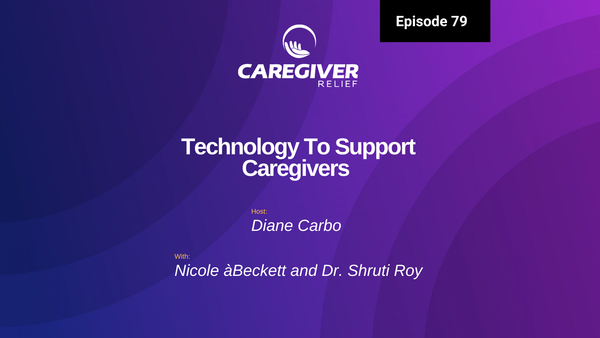How Long is Hospice Care?

Hospice care is a type of medical care that focuses on providing comfort and support to those who have been diagnosed with a terminal illness. This care helps make the patient's last days as comfortable and peaceful as possible, and provides emotional, spiritual, and practical support for the patient's family and caregivers. The goal of hospice care is to bring compassion, understanding, and quality of life to individuals in their last stages of life.
Purpose of This Guide
This guide is designed to help people better understand the length of time a patient will typically remain in hospice care, as well as how the length of hospice care is determined. It will provide an overview of the different factors that can affect the duration of hospice care, such as the patient’s condition, the family’s wishes, and legal and ethical considerations. We will also examine two case studies to provide real-life examples of how these various factors can influence the length of hospice care.
What is Hospice Care?
Hospice care is a form of end-of-life care that focuses on providing comfort and support to patients and their families. It helps people cope with the emotional, spiritual, and physical challenges of living with a life-limiting illness. Hospice care is often provided in the home, but can also take place in an assisted living facility, nursing home, hospital, or hospice center.
The goal of hospice care is to enable patients to live the remainder of their lives as fully and comfortably as possible. To achieve this, hospice care focuses on making the patient’s physical and emotional needs a priority. An interdisciplinary team of healthcare professionals work together to provide symptom management, emotional support, and meaningful experiences.
The following are some of the services that hospice care provides:
- Pain and symptom management
- Social work services
- Spiritual and emotional counseling
- Bereavement counseling
- 24-hour telephone access to care
- Home health aides
- Meal delivery and assistance
By providing comprehensive and compassionate care, hospice care seeks to help patients live with dignity and respect while making the most of the time they have left with their loved ones.
Determining Length of Stay
When a patient and family begin the process of considering hospice care, one of the first questions they have is often, “How long will my loved one be in hospice care?” Unfortunately, it’s not always possible to provide a definite answer. The length of stay for a patient in hospice care depends on a variety of factors that are unique to each individual case.
The first step in determining how long a patient will be in hospice care is having an open dialogue between the patient and their family. This conversation should involve discussing the patient’s prognosis as well as the goals of hospice care. It’s important to consider both the physical and psychological needs of the patient, so that hospice staff can tailor their care to meet those needs.
Once the patient’s needs have been identified, hospice staff will make recommendations on the duration of care. All of these elements come together to form an individualized plan of care that addresses all the patient’s needs. This plan can be adjusted over time as the patient’s condition changes, and as new needs arise. Ultimately, the end goal is for the patient and their family to feel supported and comforted throughout the journey.
Guidelines for Determining Length of Stay
When it comes to determining the length of stay for hospice care, Christ Hospital has established some guidelines. The hospital recommends that patients and their families discuss the length of stay before treatment begins. They also suggest that families make sure they understand the nature of hospice care, such as the fact that palliative care and pain relief are the primary goals, as well as that treatments may vary depending on the condition of the patient.
It is suggested that families and patients consider certain factors when making this decision. These include the patient's overall health, their goals for their quality of life, and what services and support they can receive from hospice services. It is important to have an honest conversation with your healthcare provider about the possible length of stay in order to gain a better understanding of what to expect.
Case Studies
When considering the length of stay for hospice care, it is important to look at particular cases. Two such cases illustrate the complex factors that come into play when determining length of stay.
Case Study 1:
This case involved a 67-year-old woman suffering from metastatic breast cancer. She had been receiving hospice care for five months when her family requested that she be placed in a nursing home. The patient was evaluated by her hospice care team, and they determined that she was not ready to be transferred yet. After an additional month of hospice care, the patient transitioned to the nursing home. In this case, the length of stay in hospice care was extended in order to ensure that the patient was adequately prepared to transition to a new setting.
Case Study 2:
This case involved an 88-year-old man who had congestive heart failure. His family requested hospice care after he had been hospitalized for five weeks. After a thorough evaluation, the hospice care team determined that the patient was deemed ready to transition to hospice care. After three weeks of hospice care, the patient passed away. In this case, the length of stay in hospice care was shorter than the average because of the patient's condition.
These two cases demonstrate the complexity of determining the appropriate length of stay for hospice care. In both cases, the patient's individual situation and needs were taken into account when determining the length of stay in hospice care.
Quality of Life Considerations
When deciding how long a patient should stay in hospice care, it is important to keep their quality of life in mind. This includes considering their physical comfort, mental and emotional well-being, and their overall satisfaction with the care they are receiving. While it is important to consider the severity of a patient’s condition when determining length of stay, it is equally important to ensure that the patient feels as comfortable as possible throughout their hospice care.
It is vital to listen to the patient’s wishes regarding their level of care. This can include determining the level of medical intervention they would like to receive, and whether or not they want to continue to receive treatments such as chemotherapy or radiation. Quality of life is an individual concept, so it is important for the patient to be part of the conversation and to make their wishes known.
When determining the right length of stay in hospice care, the patient’s family should be involved in the decision-making process. Families may be able to provide insights into their loved one’s wishes, and may be able to help identify signs of declining quality of life. Additionally, they can provide insight into how the patient has responded, both positively and negatively, to different types of treatments or therapies.
Ultimately, the goal is to maintain the patient’s quality of life throughout their hospice care. It is important to remember that every patient is unique, and what works for one individual may not work for another. By taking the time to fully assess each patient’s particular needs and wishes, caregivers can ensure that the hospice experience is positive and comfortable for their patients.
Legal & Ethical Considerations
When it comes to determining how long a patient should remain in hospice care, there are legal and ethical considerations that must be taken into account. These considerations must be weighed against the wishes of the patient and their family. There is no single answer that applies to every case, as each situation is different and must be assessed individually.
In order for the length of stay to comply with legal and ethical standards, it must be determined by weighing the benefits and risks associated with the patient's specific condition and their prognosis. The patient must be provided with informed consent, which includes providing patients and their families with accurate information about possible outcomes and the potential risks and benefits of each course of action.
It is important to remember that end-of-life care should be focused on maintaining and improving quality of life. The decision of how long a patient should stay in hospice care must take into account the patient's individual needs, as well as their physical, emotional, and spiritual well-being.
Questions to Ask
Before deciding how long to stay in hospice care, it is important for patients and families to ask questions. This will help ensure that everyone involved has a clear understanding of the situation and can make the best decisions for the patient. Here are some key questions to consider when thinking about hospice care:
- What is the estimated length of stay?
- What services are included during this time?
- Are there any activities or treatments that are outside of hospice care that could be beneficial?
- What are the goals for the patient during their stay?
- What measures can be taken to support the patient's quality of life?
- Who is available to provide emotional and spiritual support?
- Are there any financial assistance programs available?
- What should the family do to prepare for end-of-life care?
Asking these questions can give families and patients a better understanding of hospice care and equip them with the knowledge they need to make an informed decision on the length of stay. It is also important to remember that a hospice care provider can provide additional guidance and assistance throughout the process.
Resources & Support
When dealing with hospice care, it can be difficult to find credible information and resources. However, there are many resources available for families and patients who need additional support when dealing with this situation.
Some organizations provide support for those coping with end of life care, both online and in-person. The Hospice Foundation of America (HFA) offers a wide range of support, including emotional and spiritual support for families. There are also many online forums that can offer much needed comfort and understanding.
In addition, the internet is a great source of information about hospice care and the length of stay. There are numerous websites dedicated to providing education on hospice care and best practices. Additionally, many hospitals and other healthcare providers have resources available to help families and patients understand the process and make an educated decision about length of stay.
Finally, there are many experts and counselors available to provide grief counseling and other support services to those who may need extra assistance when dealing with hospice care. These professionals can provide invaluable assistance and support during a difficult time.
In summary, hospice care is a type of specialty care that provides comfort and support to individuals with terminal illnesses. The length of stay varies depending on several factors, such as the patient's health, age, and prognosis. It is important to have conversations with family and medical professionals to determine the best length of stay for each individual patient. It is also necessary to consider legal and ethical considerations to ensure the patient's rights and quality of life are protected. Finally, there are many resources available to help families and patients with all aspects of hospice care.
The journey of hospice care can be a difficult one for both patients and their families. It is important to understand the length of stay in hospice care, as well as the associated factors that influence it, such as the patient’s condition and overall quality of life. Additionally, we have examined the legal and ethical considerations surrounding the length of stay in hospice care, as well as provided resources and support for those who are dealing with it.
Ultimately, when considering how long a patient should stay in hospice care, it is vitally important to keep quality of life in mind. It is also essential to ask questions and seek guidance from an expert when needed. We hope this guide has provided an overview of hospice care and the factors that may influence its length. If you have additional questions or would like more information, please contact a hospice care professional.
You might also like this article:






